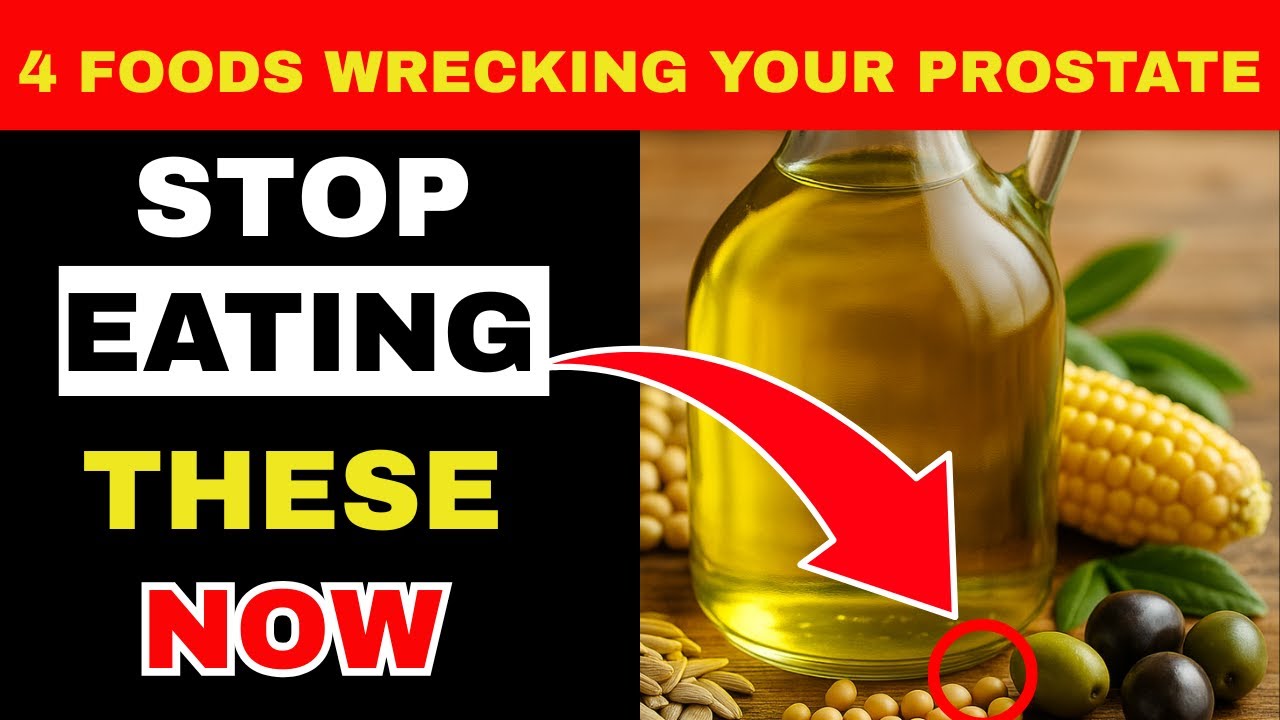4 Things to Avoid to Naturally Reverse Prostate Enlargement

Details
| Title | 4 Things to Avoid to Naturally Reverse Prostate Enlargement |
| Author | FitSenior |
| Duration | 23:54 |
| File Format | MP3 / MP4 |
| Original URL | https://youtube.com/watch?v=lx6yEHIzrq8 |
Description
Millions of men suffer silently from frequent urination, nighttime trips to the bathroom, a weak urinary stream, and the constant feeling of pressure — without ever realizing that common foods may be contributing to the problem.
In this video, we break down 4 everyday ingredients that may be silently fueling prostate enlargement (BPH) — and what you can do to start reversing the damage naturally.
These aren’t exotic toxins or rare chemicals.
They’re foods found in almost every household.
And unless you understand how they affect your hormones and inflammation, you might never get the relief you’re looking for — even with medication.
👉 In this video, you’ll learn:
• How dairy affects your hormone balance and prostate tissue
• Why vegetable oils increase inflammation and may worsen BPH symptoms
• The surprising connection between sugar, insulin resistance, and prostate growth
• How soy can disrupt hormonal signaling and what types to avoid
• Practical, natural strategies to reduce symptoms and support healing
Whether you're just starting to experience prostate symptoms or have been managing BPH for years, this video gives you clear, science-backed steps to support your health — naturally.
________________________________________
💡 Like this video?
Give it a thumbs up to support the channel and help more men take back control of their health.
🔔 Subscribe for weekly videos on men’s health, hormone balance, natural remedies, and nutrition.
________________________________________
📚 Sources & Scientific References:
1. Giovannucci, E. et al. (2001). Calcium and Fructose Intake in Relation to Risk of Prostate Cancer. American Journal of Clinical Nutrition, 74(4), 549–556.
👉 https://doi.org/10.1093/ajcn/74.4.549
2. Zhang, M. et al. (2013). Dietary patterns and the risk of benign prostatic hyperplasia in Chinese men. British Journal of Nutrition, 109(4), 594–602.
👉 https://doi.org/10.1017/S0007114512001474
3. Pelser, C. et al. (2013). Vegetable fat intake and reduced risk of advanced prostate cancer. JAMA Internal Medicine, 173(14), 1318–1326.
👉 https://doi.org/10.1001/jamainternmed.2013.6536
4. Song, Y. et al. (2006). Plasma estrogens and estrogen metabolites and risk of prostate cancer in older men. Prostate, 66(13), 1451–1460.
👉 https://doi.org/10.1002/pros.20449
5. Esposito, K. et al. (2004). Inflammatory cytokine concentrations are acutely increased by hyperglycemia in humans: role of oxidative stress. Circulation, 110(2), 206–211.
👉 https://doi.org/10.1161/01.CIR.0000132627.36652.0A
6. Messina, M. (2010). Insights gained from 20 years of soy research. Journal of Nutrition, 140(12), 2289S–2295S.
👉 https://doi.org/10.3945/jn.110.124107
7. Hajjar, T. A. et al. (2015). Metabolic syndrome and benign prostatic hyperplasia: a meta-analysis of observational studies. International Urology and Nephrology, 47, 275–284.
👉 https://doi.org/10.1007/s11255-014-0883-z
Disclaimer:
The information provided in this video is for educational and informational purposes only and is not intended as medical advice. Always consult with your doctor or a qualified healthcare professional before making any changes to your diet, especially if you have existing health conditions or are taking medication. Individual needs may vary, and what works for one person may not be suitable for another. The creators of this video are not responsible for any adverse effects or consequences resulting from the use of the information presented.